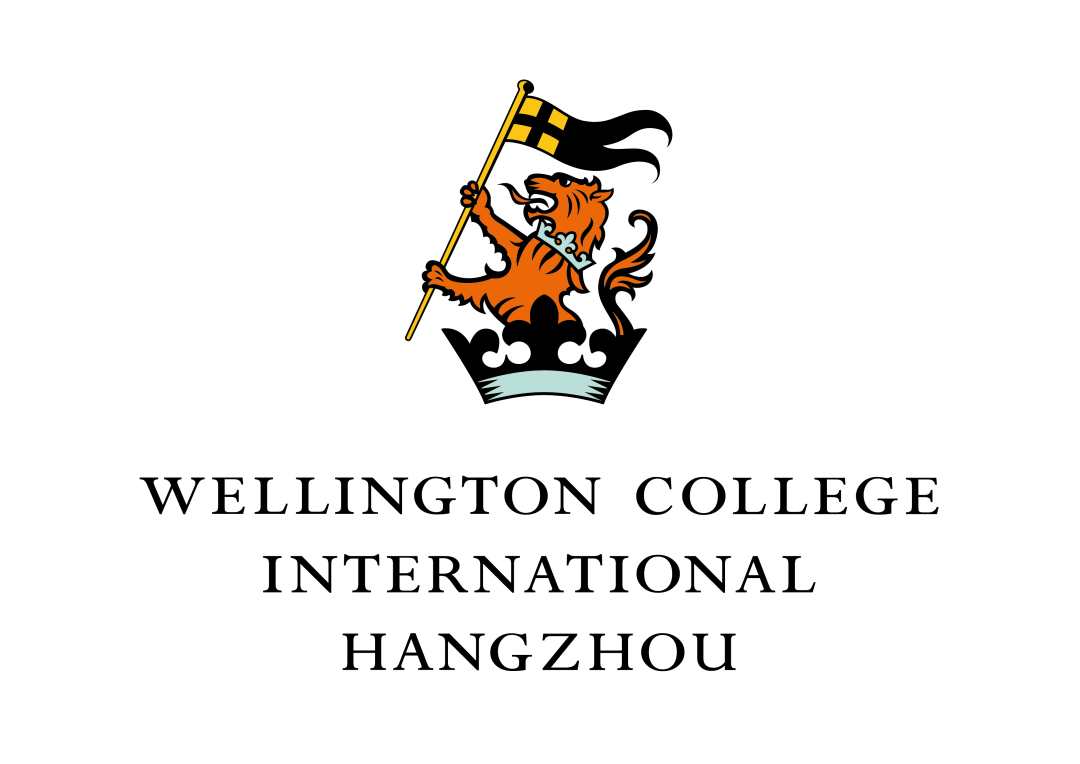Learning IGCSE Science at Wellington | 如何学好IGCSE科学课程
Science is not an easy subject, but with hard work, motivation and curiosity to learn more about our world, it becomes alive. Today, our Head of Senior Science, Mr. Graham Starkey, will briefly introduce the IGCSE science course at Wellington and share his insight on learning IGCSE science with us.
Graham Starkey
Head of Senior Science
At WCIH, all pupils take the Edexcel triple science route, i.e., every pupil takes an IGCSE in biology, chemistry and physics. Therefore, pupils cover more content and are better prepared if they take science A Levels. Statistically, pupils who take separate IGCSE sciences are also more likely to get higher grades in A Level science subjects. Most top universities prefer an application for science subjects to have taken the triple award option at IGCSE. Many skills are associated with taking science IGCSEs, such as research, problem-solving and analytical skills or developing a scientific way of thinking.
We start the course in Year 9, so we give three years in which pupils need to complete the course. At the end of the course, pupils will sit six final examinations (two per subject), and the final grade is on a 9 to 1 scale.
Next, let us listen how Mr. Starkey replied to some frequently asked questions.
How do pupils prepare for IGCSE science assessments?
The IGCSE in-house assessments usually consist of a 45-minute end of topic unit and past paper questions related to the studied topic. During the year, it is common to have more extended mock examinations, usually sat under examination conditions. The best way to revise for any assessment is to use different revision strategies and find the best ones that work for you. For instance, some pupils prefer to write their own notes; some prefer drawing flow charts or diagrams. Long-term memory will remember the details by not simply reading but writing in different formats. Of course, pupils should look at past examination papers and learn how to read a mark scheme. It will help pupils understand the question and learn how to gain maximum marks.
How is science taught at Wellington?
The methodology we follow in teaching science at WCIH is hands-on practical, or activity-based learning. Our pupils have state-of-the-art experiment facilities at Wellington, so they are better prepared for assessed practical work at A Level and universities. We believe that pupils learn more by experiencing and carrying out scientific experiments by themselves. Because of how we teach at WCIH, pupils acquire teamwork and communication skills.
We have also invited renowned guest speakers to deliver inspiring speeches for our pupils. Last semester, we invited Dr. Cristiano Alpigiani to pay a virtual visit to our Year 9 pupils, a great opportunity to learn about the Large Hadron Collider, meet an established scientist and build upon their existing knowledge in learning science. We look forward to having more real-life scientists to inspire our young scientists.
What are the most common mistakes in science assessments?
Pupils make mistakes in assessments by not reading the question carefully. They think they understand what the question has asked and answer too quickly without realising they are on the wrong path. Pupils often do not know the command words of each question and what they mean. It is something that needs to be taught over a period of time. In some questions, there are some ‘hidden’ clues in the text that pupils can overlook.
To succeed in science, pupils must read more and discuss science using the correct terminology. If they can master this, scientific words will become part of their everyday conversations.
Do you have some suggestions for pupils to memorise these scientific terms?
The best strategy to memorise words is first to understand what these words mean in the correct context. Once they know the word’s meaning, it can be used as part of their spoken language and will be easier to memorise. Because some words stem from Latin, you can work out what they mean by learning the prefix. For instance, in science, the prefix photo means light hence the words photographs, photosynthesis, photocell and photocopier.
What careers do science subjects lead to?
Physics is a gateway subject and can lead to a host of careers in a whole range of industries, such as engineering, IT, the internet, and the energy industries. In addition, biology and chemistry can lead to jobs which are just as diverse such as healthcare, medicine, and pharmaceuticals, to name just a few.
Sometimes, it feels like science is an abstruse course. So how do students stay motivated and enthusiastic about learning science?
Like everything, motivation is the one factor that needs to be maintained as the IGCSE is a three-year course. Success might not come easy during this time, but it is essential to be resilient and not give up. Always maintain a positive mindset and realise that everyone learns from mistakes. Enjoy the pursuit of gaining more scientific knowledge. Pupils need to develop a sense of passion towards the subject and persevere towards the long-term goal of achieving their best grades. Grit is not something you are born with; you don’t learn it in a classroom. However, it will define you as a person as you get older.
要学好科学并不是一件容易的事。要让科学学习生动起来,就离不开勤奋积极的学习态度和旺盛的求知欲和好奇心。今天,中学部科学教研组长Graham Starkey将为我们介绍惠灵顿的IGCSE科学学科,分享他对IGCSE科学学习的见解。
在杭州惠灵顿外籍人员子女学校,所有学生都将学习三科学,即分别参加生物、化学和物理的IGCSE考试。三科学覆盖的科学知识更广泛,也能让计划在A Level阶段继续修读科学学科的学生更加得心应手。数据表明,修读IGCSE三科学的学生更能在A Level科学学科考试中取得高分。如果计划在高校深造科学学科,那么在IGCSE阶段选修了三科学的学生更能得到大多数顶尖高校的青睐。学习IGCSE科学学科还能锻炼学生的调查能力、解决问题的能力和分析能力等,培养起科学的思维方式。
我校学生从九年级开始学习IGCSE科学学科,共有三年时间来掌握课程知识和技能。课程学习结束后,学生将完成共六份试卷(每科两份),最终评分采取9-1分的评估标准。
下面,让我们来听一听Starkey老师对一些学生常见问题的解答。
IGCSE科学学科的课上考核通常是45分钟的单元末小测和学科相关的真题解答。学年中,我们会开展一些拓展模拟测试,让学生熟悉真正的考试环境。考前复习有许多通用的技巧,即采用不同的复习策略,找到最适合自己的方法,坚持复习。例如,有的学生喜欢记笔记,有的喜欢画流程图或示意图。保留在长期记忆中的不是单纯读到的知识点,而是用不同方式写下来的细节。当然,学生还要从以往真题中汲取经验,看懂评分机制,理解问题背后的逻辑,掌握拿高分的技巧。
在惠灵顿,我们采取的是实操型的教学方法,即基于活动的教学法。学校配备先进的实验设施,能让学生为后续A Level学习和大学阶段的实践操作夯实基础。我们相信,学生能在亲手做科学实验的过程中学到更多。这种教学方法还能培养学生的团队协作能力和沟通技能。
我们还会邀请知名客座嘉宾来为学生开展讲座。上学期,我们邀请科学家Cristiano Alpigiani博士与九年级学生开展了一场连线活动。活动中,同学们得以了解大型强子对撞机、结识颇有建树的知名科学家、拓展以往所学。期待着未来能有更多的科学家来为惠灵顿的年轻科学家带来启迪。
学生不仔细读题时就会出错。读题不认真、急于答题,犯错就在所难免。同学们常常不明白问题里的指令词和意义,这时就要认真地学习一段时间,明确问题的含义。有些问题的措词里含有“隐藏”线索,这也是学生容易忽略的。
要学好科学,学生必须要多读、多用正确的科学术语开展讨论。一旦熟练掌握后,术语就能成为日常对话中的一部分。
记忆术语的策略是要先理解这些单词在正确语境中的含义。先理解好,再多说几遍,就能记住了。有些术语词源于拉丁语,那么学会单词前缀就能分析出单词的意义。例如,在科学领域,前缀“photo”的意思是“光”,于是“照片、光合作用、光电池、复印机”等带这一词缀的单词(photographs, photosynthesis, photocell, photocopier)就比较好理解了。
物理学是一门包罗万象的学科,学习物理后可以从事工程、信息技术、互联网、能源等行业的多种职业;生物和化学学习也能敲开五花八门的职业大门,如保健、医疗、制药等等。
科学学科有时候比较晦涩难懂。学生要怎样保持学习的动力和热情呢?
其实做很多事情都离不开求知的动力。要学好持续三年的IGCSE科学课程也是一样。成功从来都不是一件容易的事情,所以我们要有披荆斩棘的毅力和不轻言放弃的信心;要有积极向上的思维,相信“失败乃成功之母”;还要享受追求科学知识的快乐,培养起对科学学科的热爱,持之以恒地争取在考试中取得最好的表现。勇气不是与生俱来的,无法在教室里习得;但随着年岁的增长,它将成为让人脱颖而出的珍贵品质。
Arrange a visit
校园参观
Applications for Year 1 - Year 12 are now being welcomed for the 2023-24 academic year at Wellington College International Hangzhou. We can offer you and your family a tailored one to one bespoke private tour where you will meet the Heads of school and experience our excellent teaching and learning. Once received, our Admissions team will be in touch.
杭州惠灵顿外籍人员子女学校2023-24学年的招生通道已开启。我们将为您与您的家人提供定制专属校园参观,您将与学部校长面对面,体验我校出色的优质教学。招生部门将在收到您的咨询表后与您联系。
9:00am and 1:00pm
上午9:00和下午1:00
声明:本文内容为国际教育号作者发布,不代表国际教育网的观点和立场,本平台仅提供信息存储服务。
课程设置:IB,AP,双语国际
学费区间:14-16万/年
课程设置:Alevel,IGCSE
学费区间:27万~30万/年
课程设置:AP,Alevel,IGCSE,国际艺术
学费区间:25.8万-29.8万








